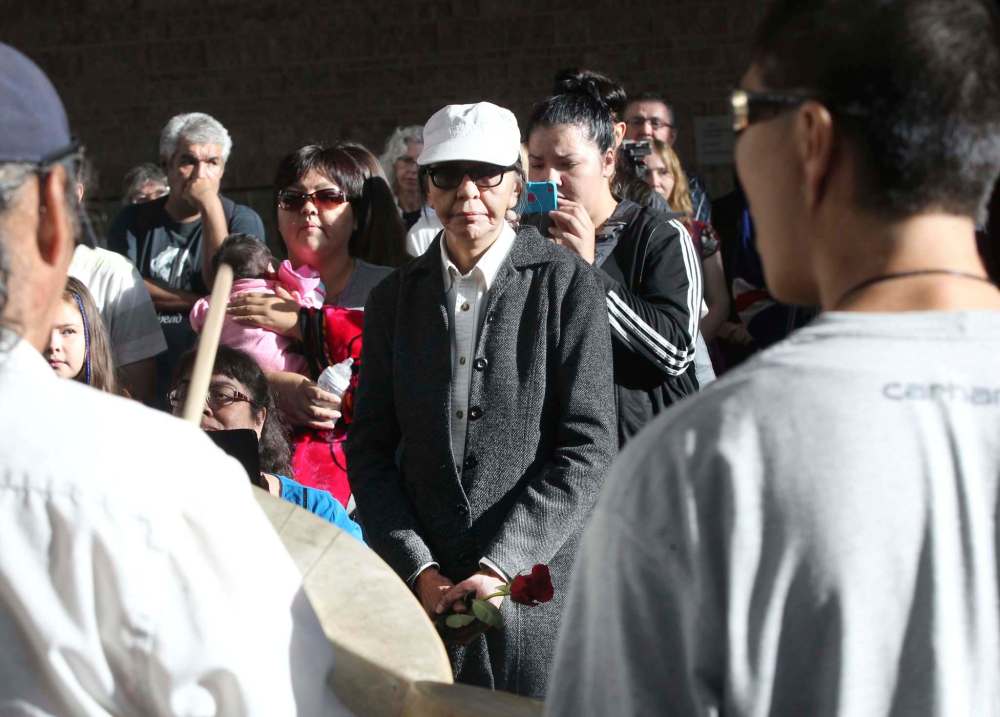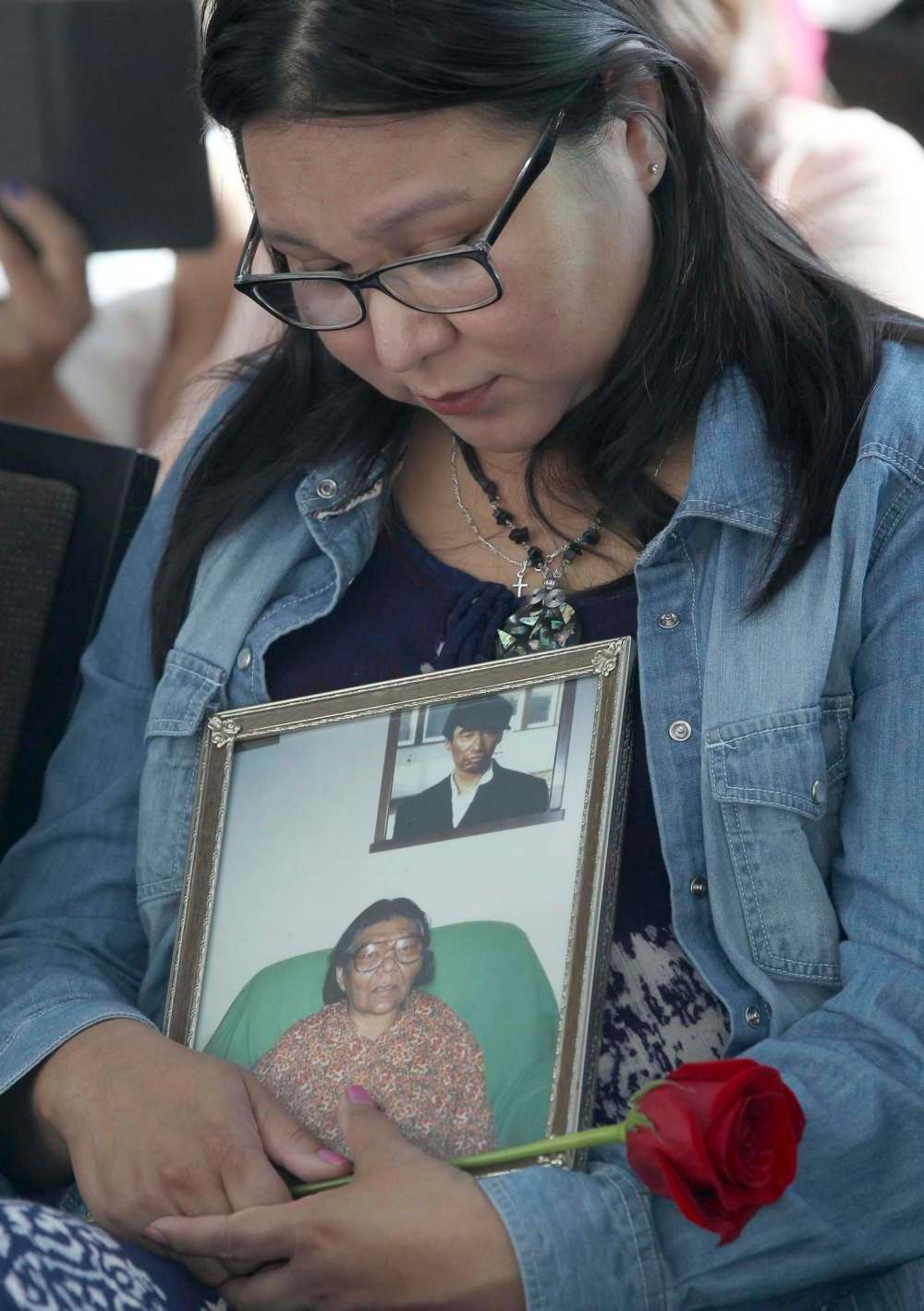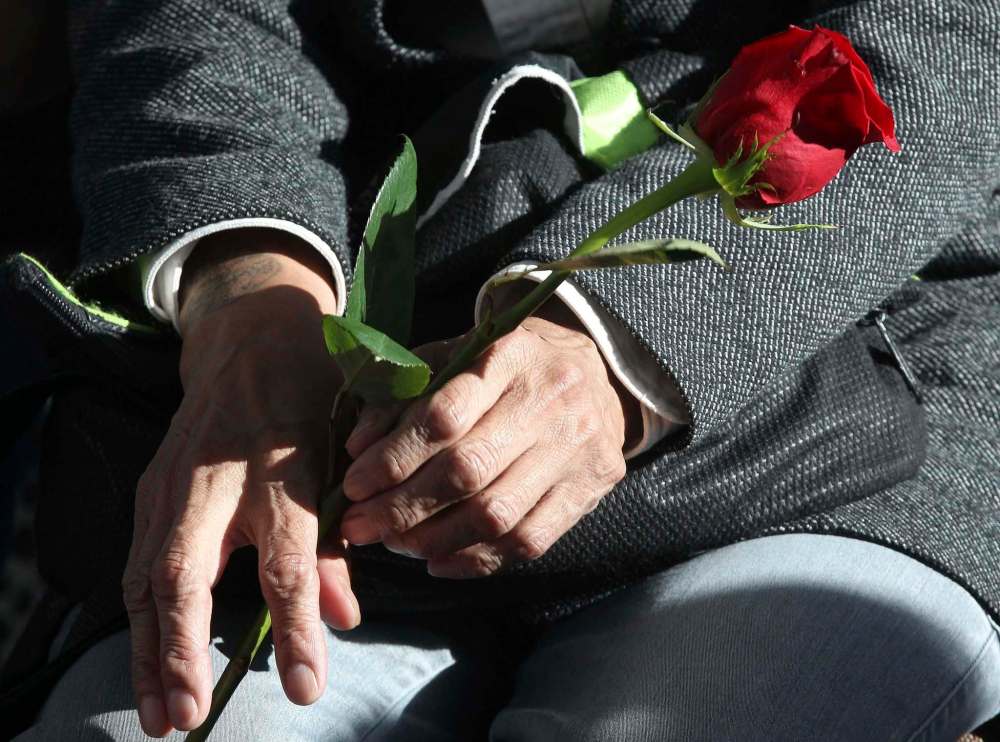Minister repeats apology to Dene
Speaks at CMHR in third and final such statement in two-day span
Advertisement
Read this article for free:
or
Already have an account? Log in here »
To continue reading, please subscribe:
Monthly Digital Subscription
$0 for the first 4 weeks*
- Enjoy unlimited reading on winnipegfreepress.com
- Read the E-Edition, our digital replica newspaper
- Access News Break, our award-winning app
- Play interactive puzzles
*No charge for 4 weeks then price increases to the regular rate of $19.00 plus GST every four weeks. Offer available to new and qualified returning subscribers only. Cancel any time.
Monthly Digital Subscription
$4.75/week*
- Enjoy unlimited reading on winnipegfreepress.com
- Read the E-Edition, our digital replica newspaper
- Access News Break, our award-winning app
- Play interactive puzzles
*Billed as $19 plus GST every four weeks. Cancel any time.
To continue reading, please subscribe:
Add Free Press access to your Brandon Sun subscription for only an additional
$1 for the first 4 weeks*
*Your next subscription payment will increase by $1.00 and you will be charged $16.99 plus GST for four weeks. After four weeks, your payment will increase to $23.99 plus GST every four weeks.
Read unlimited articles for free today:
or
Already have an account? Log in here »
Hey there, time traveller!
This article was published 17/08/2016 (3364 days ago), so information in it may no longer be current.
Canada apologized for the third time in two days Wednesday morning for the horrific forced relocation 60 years ago of the Sayisi Dene people.
Indigenous and Northern Affairs Minister Carolyn Bennett delivered the apology for the forced 1956 move — which led to hunger, violence, death and the near-eradication of a culture — in the tranquil surroundings of the Garden of Contemplation at the Canadian Museum for Human Rights.
“I think it is difficult and gratifying (to deliver the apology),” the federal cabinet minister said to gathered media after the two-hour event, which included words from two of the remaining 18 Sayisi Dene survivors.

In 1956, about 250 Sayisi Dene were forced by the federal government out of Little Duck Lake to a barren area near Churchill, partly because the federal government believed they were causing a steep decline in the caribou herd — an idea later proven wrong.
In the new location, food was scarce, and housing was inadequate. The Dene were forced to scavenge the dump and were assaulted by Churchill residents.
About one-third of the relocated Dene died “as a result of poverty, racism and violence,” the Manitoba government said in a 2010 apology for its role.
Survivors abandoned that place in 1973 when five men led dog-sled teams on a 13-day trek inland to start anew in a community at the remote Tadoule Lake, now home to about 300 people at Sayisi Dene First Nation. The reserve is about 300 kilometres northwest of Churchill.
A number of easels were set up in the Garden of Contemplation with photographs of the 18 survivors, the names of the members who died and other historical photos of community members over the years.
Survivor Jimmy Clipping, who was 12 years old during the relocation, was in his 20s when he was one of the five men who drove dog sleds to Tadoule Lake.

“I’m proud right now to say that I have contributed to my peoples’ well-being. I didn’t do it by myself. I had my peoples’ help,” said Clipping, a former band council member.
“The courage was there. When we saw our people dying all over the place, it was like an everyday thing that was happening. The elders said, ‘Let’s move out. Let’s move back to the country that we came from, let’s go back to our land. We never had the money to do anything, but our courage was there.”
Along with the apology, the federal government has agreed to pay $33.6 million in compensation to be invested as a trust and set aside 13,000 acres of land at Little Duck Lake. The fund will support a comprehensive community development plan created by Sayisi Dene Chief Ernie Bussidor and other community leaders for education, housing and employment programs.
Graphic descriptions of the people’s suffering were shared at the event Wednesday, but the theme of healing was ever-present.
“It’s been a hard run for us as a people, but one thing they could never take from us, even when we ate from the garbage dump of the very people that despised us (at Churchill), was the dignity that we carried in our hearts,” said Bussidor.

“When we ran away from Churchill, we ran as far as we could. We had to escape the clutches of despair… When we moved to Tadoule, it was our sanctuary.
“We have nobody to thank for our existence but our elders.”
The chief was born one month before the relocation and said many of his people have suffered post-traumatic stress.
Youth leader Angela Code, who grew up in Tadoule Lake before moving away for school, said she finds strength in thinking of her ancestors and their fight for survival.
“Your simple existence is a defiance in the face of colonization,” Code said.
— with files from Alexandra Paul

ashley.prest@freepress.mb.ca
History
Updated on Wednesday, August 17, 2016 12:04 PM CDT: Photos reordered
Updated on Wednesday, August 17, 2016 11:07 PM CDT: updated






